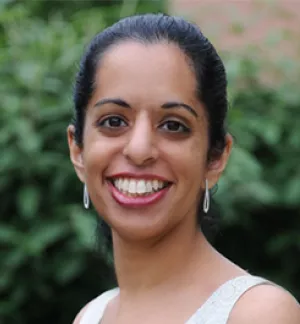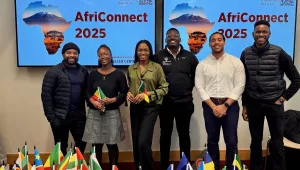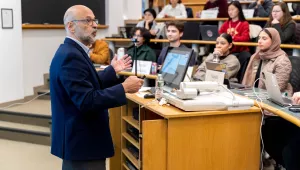The global community is increasingly facing critical challenges in healthcare, energy, sustainability, and agriculture. These issues are technologically complex, requiring scientific literacy among politicians, policymakers, and populations in both developed and developing nations. Moreover, these issues demand innovative discoveries, requiring well-trained engineers to both invent creative and cost-effective solutions as well as inform decisionmakers on relevant technical considerations.
In order for solutions to global grand challenges to be practical and lasting, the innovative process leading to these solutions must be inclusive. The voices of scientists and engineers from all nations must be incorporated into inclusive innovation, and the approaches of scientists and engineers from diverse social and cultural backgrounds must be incorporated into engineering inventions. For instance, scientists and engineers from low and middle income countries have the best insights into the needs of these countries, and they can often develop the most elegant designs.
Worldwide, PhD-level scientists and engineers play a crucial role in fostering a climate of inclusive innovation. Doctoral training imparts a student with in-depth knowledge in a particular field of science or engineering. PhD students learn to identify problems and work independently to derive solutions to those problems. A PhD empowers an individual to solve open-ended problems, and enables the trainee to write technical papers and teach undergraduate students, both of which are critical for knowledge generation and knowledge transfer.
Within each nation, PhD-trained scientists and engineers run research groups and teach classes at universities; start companies and develop new products in the private sector; and provide expertise for government officials in the public sector.
A cadre of highly trained, PhD-educated scientists and engineers is therefore necessary for each nation, not only to generate innovative discoveries and to train the next generation of scientist and engineers, but also to train the next generation of congressmen and cabinet ministers, and thereby guarantee scientific literacy among world leaders and throughout the world.
The African continent is currently coping with a massive shortage of highly trained scientists and engineers... According to the UNESCO Science Report 2010, in 2007 the entire continent of Africa contained 164 researchers per million individuals in the population, while the world average was 1,081 researchers per million individuals in the population. The situation is even direr in sub-Saharan Africa, which contained only 79 researchers per million individuals in the population during this time period.
The African higher education system is still adapting to include the bachelor’s-master’s-doctorate progression, the standard for education worldwide. The cost of higher education is a prohibitive factor, as Africa has limited infrastructure for laboratories, and governments confront other pressing priorities such as poverty alleviation. Yet higher education in Africa is necessary to ensure inclusive innovation, to ensure continued economic development, and to ensure that countries are not left behind. In other words, a policy agenda that promotes science, technology, and innovation is essential to the long-term success of African nations.
The World Academy of Sciences (TWAS) has made great strides in increasing the number of PhD-trained scientists and engineers in Africa. TWAS awards grants and fellowships to pre- and postdoctoral scientists and scholars conducting research in biology, chemistry, engineering, and physics in countries identified as lagging in science and technology. Such programs connect budding scientists with host laboratories; enable cross-fertilization of ideas; encourage global citizenship of scientists; and expose scientists to world-class laboratory facilities. TWAS thus gives opportunities for young scientists and engineers in Africa to conduct experimental work in the life sciences and physical sciences, helping these innovators to overcome limitations in laboratory infrastructure, and giving these innovators the skills to establish their own independent research laboratories.
An additional and complementary method for encouraging science, technology, and innovation in Africa is to promote PhD work in fields such as mathematics, statistics, and applied mathematics. Such fields do not demand the same degree of laboratory infrastructure and advanced equipment, yet the training is every bit as rigorous as that provided by a PhD program in life sciences or physical sciences, and the problems addressed can be highly relevant to societal needs.
The Society for Industrial and Applied Mathematics published a 2012 report on Mathematics in Industry to highlight the contributions of mathematicians and statisticians in a wide variety of industry sectors. The report describes case studies in which mathematical modeling solved problems in pharmaceutical development, image analysis, virtual prototyping, robotics, waste management and infrastructure development for smart cities, process design optimization, and transportation logistics. Further, individuals with doctoral training in mathematics and statistics can educate the next generation of African scientists and engineers to solve complex problems.
Training of PhD-level mathematicians, statisticians, and applied mathematicians can and should proceed in parallel with training and infrastructure development for PhD-level experimental scientists and engineers in Africa.
This dual strategy will allow these left-behind nations to quickly catch up in science and technology, and it will cultivate a culture of innovation in Africa, and accelerate the valuable technical contributions of African scientists and engineers. Novel North-South partnerships can be formed, in which mathematicians from the South collaborate with experimentalists from the North to jointly solve global grand challenges, inspiring a two-way flow of innovation. Such initiatives will stimulate inclusive innovation and generate beneficial impacts both locally and globally. Ultimately, inclusive innovation will lead to inclusive economic development and inclusive progress.
Bhatia, Sujata. “Doctoral Training in Science and Engineering in Africa .” June 3, 2013




